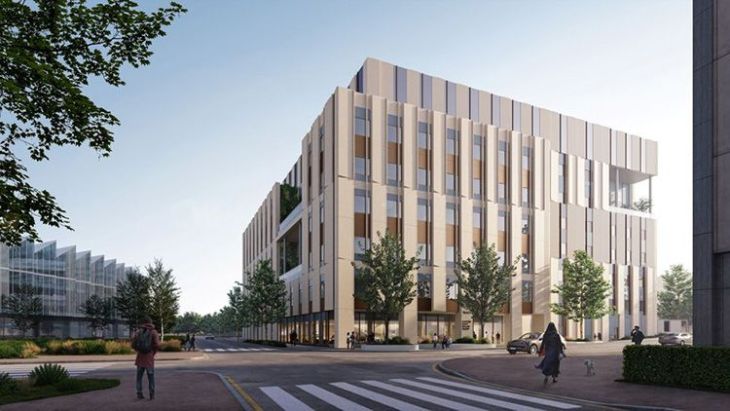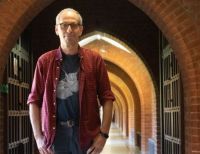Catching cancer early
One of the main focus areas for the new hospital is an area in which Cambridge has built unique expertise: early detection and intervention.
"We know that for a lot of cancers there is a latency period where they're either in a precancerous stage or in an early cancer stage before it can ever be diagnosed by conventional methods," says Ford. Are there ways to detect the cancer at this early stage and intervene?
Gilbertson says such an approach will present a ‘win-win’ for both patients and the NHS. "If you detect the cancer early, the survival chances are much better and the treatment needed is generally easier and more straightforward. This is better for patients and much less expensive for the NHS."
The top floor of the future hospital will house the Early Cancer Institute Research Clinic, headed by Professor Rebecca Fitzgerald, a clinical researcher who spends part of her time looking after patients with oesophageal cancer, a cancer that is difficult to treat if not caught early.
"We're being much more proactive," says Fitzgerald. "We're trying to predict who needs more careful monitoring or preventative action ahead of them even knowing they've got a problem."
This will make Cambridge Cancer Research Hospital the only hospital in the UK that has space specifically aimed at preventing cancer, she says. "It's really a testament to putting faith in the fact that we think there are different ways of doing things for the future."
Fitzgerald already heads the Early Cancer Institute across the Campus, which is undergoing redevelopment as the Li Ka Shing Early Cancer Institute to enable world-class fundamental research aimed at understanding how cancers emerge and develop, finding biomarkers to detect it, and developing new strategies to find people at risk and to intervene.
She says the new Research Clinic in the hospital will enable them to translate their discoveries into clinical practice. On the top floor it will have space for healthy and pre-symptomatic individuals to take part in studies as well as a "hotel type of arrangement" where researchers from across Cambridge and beyond – often from disciplines outside medicine, such as physics, engineering and maths – are able to spend a period of time working in partnership with patients to develop and test their innovations.
"The best way to really get research done in the most efficient way is to have it right alongside the patient," she says. "The closer you can bring these things together, to really embed it in the whole ecosystem, it makes it easier for the researchers, it makes it easier for the patients."
Developing a diagnostic test can be a long and laborious process. Fitzgerald knows this only too well. Her capsule sponge for diagnosing Barrett’s oesophagus, a condition that greatly increases the risk of oesophageal cancer, is in the final stages of testing before being rolled out across the NHS, but it has taken two decades to reach this stage.
The hospital has carried out economic modelling that shows how having researchers in geographically dispersed locations – even just across the city, as is the case with Cambridge – can significantly hamper innovation.
"Even for some of the more straightforward inventions that we've invented here, particularly in early detection, could have been developed years faster had scientists been located next to patients," says Gilbertson, who is also Chair of the NHS Innovation External Advisory Board, and so is familiar with the challenges of bringing innovations into the NHS.
"To change the story of cancer, there needs to be a seamless integration between research and NHS care," he explains. "We're seeking to take the very best of Cambridge science and make sure it’s ‘NHS ready’, ensuring it can be readily deployed in York, Hartlepool, Stockport, wherever, patients need it."
















